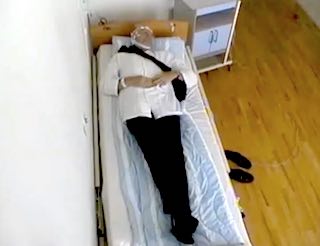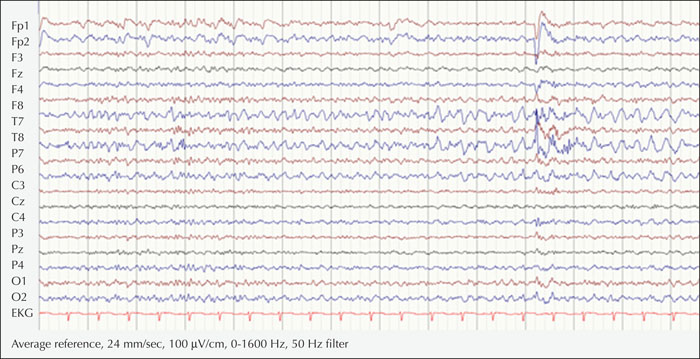Epileptic Disorders
MENUTransient epileptic amnesia diagnosed using long-term electroencephalography Volume 22, numéro 2, April 2020
- Mots-clés : transient epileptic amnesia, seizure, MRI, long-term EEG monitoring, levetiracetam
- DOI : 10.1684/epd.2020.1148
- Page(s) : 225-8
- Année de parution : 2020
Transient epileptic amnesia (TEA) is a distinct syndrome affecting middle-aged persons without concurrent brain disease or disposition to epileptic seizures. Seizures are characterized by amnesia, usually lasting less than one hour, and interictal memory deficits that are common. Effective antiseizure treatment is usually rapid in patients with TEA, which underlines the need for prompt diagnosis. Here, we report a 58-year-old male patient with recurrent episodes of antero- and retrograde amnesia. MRI was normal and diagnosis was made using long-term EEG (27 hours), revealing 10 right-sided temporal lobe seizures with subtle clinical symptoms lasting up to 86 seconds. Details of the video-EEG are presented. Treatment with levetiracetam resulted in complete recovery and seizure freedom that was confirmed on a second long-term EEG. Given the favourable outcome with antiseizure treatment, our case study illustrates the role of long-term EEG monitoring in patients with recurrent transient amnesia to establish a correct diagnosis [Published with video sequence].



